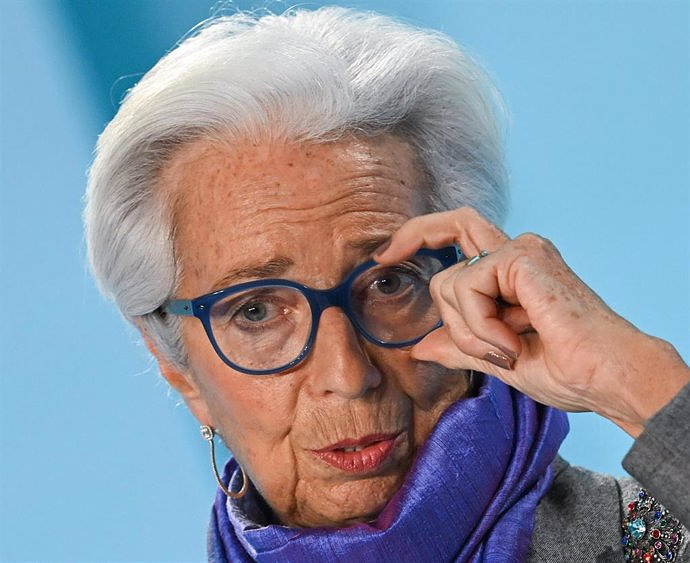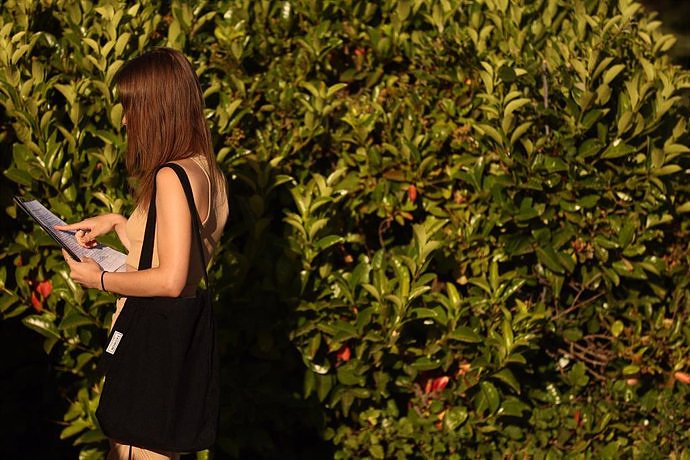MADRID, 8 Dic. (EUROPA PRESS) -
The Government has justified the recent expulsion of Mohamed Said Badaoui, the Islamic leader from Tarragona who was arrested for crimes related to jihadist radicalism and who received the support of pro-independence groups and En Común-Podem in the Catalan Parliament considering him a victim activist of "Islamophobia".
"Article 54.1.a) is being applied very serious violations of Organic Law 4/2000", says the Executive in reference to the current regulations on Immigration, and quotes verbatim: "Participating in activities contrary to security national or that may harm Spain's relations with other countries, or be involved in activities contrary to public order".
In this sense, it recalls that in the present legislature the State Security Forces and Corps have carried out 135 arrests for their alleged belonging or connection to jihadist terrorism, including two minors among those arrested --a Spanish national and another a Moroccan -- with legal documentation in national territory, according to the written response dated November 21 consulted by Europa Press.
"The State Security Forces and Corps, in the field of offenses in immigration matters and its sanctioning regime, are in charge of following legally established procedures and deadlines in the matter," continues the Government, which recalls that Spain has been here since 2015 on anti-terrorist alert 4 and that in 2019 updated the National Strategy Against Terrorism.
Mohamed Said Badaoui, a resident of Reus, was arrested on October 18 and admitted to a Center for the Internment of Foreigners (CIE) until, a month later, the expulsion order to Morocco was executed. The same happened with Amarouch Azbi, another prominent leader of the Islamic community.
ERC, CUP, Junts and Unidas Podemos-En Comú Podem denounced after his arrest that Mohamed Said was a victim of "political repression through the Aliens Law". Hence, through the Catalan Parliament, they urged the Generalitat to "activate all administrative, legal and diplomatic tools to ensure their rights."
However, the Contentious-Administrative Chamber of the National Court refused to suspend the expulsion of Mohamed Said, whom the Police describe as "one of the main leaders in Spain of the most orthodox Salafism", responsible for the "increase in radicalism in the Tarragona region because of his speech".
The National Court recalled that the decision of the Ministry of the Interior was based on a complaint from the General Information Commissioner where it warned of "his ideological radicalism", specifically mentioning the "indoctrination" in his community through the dissemination of "pro-jihadist postulates".
The Police warned that Mohamed Said would have "ties to radical individuals related to terrorism" and that he had dedicated himself "for years" to "proselytizing and recruiting" activities.
He especially pointed out his attempt to recruit among the "most vulnerable and manipulable groups, paying special attention to minors, specifically unaccompanied minors, mainly of Moroccan origin, indoctrinating them into the most radical Salafism." He would also have dedicated himself to promoting "victimism and occidentalophobia".

 Exploring Cardano: Inner Workings and Advantages of this Cryptocurrency
Exploring Cardano: Inner Workings and Advantages of this Cryptocurrency Seville.- Economy.- Innova.- STSA inaugurates its new painting and sealing hangar in San Pablo, for 18 million
Seville.- Economy.- Innova.- STSA inaugurates its new painting and sealing hangar in San Pablo, for 18 million Innova.- More than 300 volunteers join the Andalucía Compromiso Digital network in one month to facilitate access to ICT
Innova.- More than 300 volunteers join the Andalucía Compromiso Digital network in one month to facilitate access to ICT Innova.-AMP.- Ayesa acquires 51% of Sadiel, which will create new technological engineering products and expand markets
Innova.-AMP.- Ayesa acquires 51% of Sadiel, which will create new technological engineering products and expand markets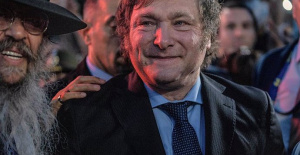 The Congress of Argentina approves the omnibus law that allows the privatization of some public companies
The Congress of Argentina approves the omnibus law that allows the privatization of some public companies Marjane Satrapi, Princess of Asturias Award: "I am angry with Borrell, if I had him in front of me I would slap him"
Marjane Satrapi, Princess of Asturias Award: "I am angry with Borrell, if I had him in front of me I would slap him"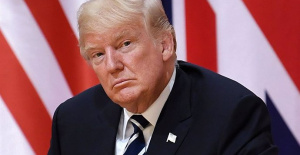 Judge fines Trump $9,000 for contempt of court and considers sending him to prison during trial
Judge fines Trump $9,000 for contempt of court and considers sending him to prison during trial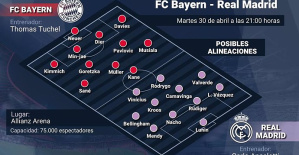 Bayern and Real Madrid live the first European 'classic' at Wembley
Bayern and Real Madrid live the first European 'classic' at Wembley How Blockchain in being used to shape the future
How Blockchain in being used to shape the future Not just BTC and ETH: Here Are Some More Interesting Coins Worth Focusing on
Not just BTC and ETH: Here Are Some More Interesting Coins Worth Focusing on Valencia unanimously approves the ordinance to allocate spaces to test innovative initiatives
Valencia unanimously approves the ordinance to allocate spaces to test innovative initiatives UPV researchers promote a paid master's degree as a "talent factory" in integrated photonics
UPV researchers promote a paid master's degree as a "talent factory" in integrated photonics A spin-off of the UV works on obtaining high-resolution 3D biomedical images in real time
A spin-off of the UV works on obtaining high-resolution 3D biomedical images in real time They create a bank of machinery sounds to prevent breakdowns through artificial intelligence
They create a bank of machinery sounds to prevent breakdowns through artificial intelligence A million people demonstrate in France against Macron's pension reform
A million people demonstrate in France against Macron's pension reform Russia launches several missiles against "critical infrastructure" in the city of Zaporizhia
Russia launches several missiles against "critical infrastructure" in the city of Zaporizhia A "procession" remembers the dead of the Calabria shipwreck as bodies continue to wash up on the shore
A "procession" remembers the dead of the Calabria shipwreck as bodies continue to wash up on the shore Prison sentences handed down for three prominent Hong Kong pro-democracy activists
Prison sentences handed down for three prominent Hong Kong pro-democracy activists ETH continues to leave trading platforms, Ethereum balance on exchanges lowest in 3 years
ETH continues to leave trading platforms, Ethereum balance on exchanges lowest in 3 years Investors invest $450 million in Consensys, Ethereum incubator now valued at $7 billion
Investors invest $450 million in Consensys, Ethereum incubator now valued at $7 billion Alchemy Integrates Ethereum L2 Product Starknet to Enhance Web3 Scalability at a Price 100x Lower Than L1 Fees
Alchemy Integrates Ethereum L2 Product Starknet to Enhance Web3 Scalability at a Price 100x Lower Than L1 Fees Mining Report: Bitcoin's Electricity Consumption Declines by 25% in Q1 2022
Mining Report: Bitcoin's Electricity Consumption Declines by 25% in Q1 2022 Oil-to-Bitcoin Mining Firm Crusoe Energy Systems Raised $505 Million
Oil-to-Bitcoin Mining Firm Crusoe Energy Systems Raised $505 Million Microbt reveals the latest Bitcoin mining rigs -- Machines produce up to 126 TH/s with custom 5nm chip design
Microbt reveals the latest Bitcoin mining rigs -- Machines produce up to 126 TH/s with custom 5nm chip design Bitcoin's Mining Difficulty Hits a Lifetime High, With More Than 90% of BTC Supply Issued
Bitcoin's Mining Difficulty Hits a Lifetime High, With More Than 90% of BTC Supply Issued The Biggest Movers are Near, EOS, and RUNE during Friday's Selloff
The Biggest Movers are Near, EOS, and RUNE during Friday's Selloff Global Markets Spooked by a Hawkish Fed and Covid, Stocks and Crypto Gain After Musk Buys Twitter
Global Markets Spooked by a Hawkish Fed and Covid, Stocks and Crypto Gain After Musk Buys Twitter Bitso to offset carbon emissions from the Trading Platform's ERC20, ETH, and BTC Transactions
Bitso to offset carbon emissions from the Trading Platform's ERC20, ETH, and BTC Transactions Draftkings Announces 2022 College Hoops NFT Selection for March Madness
Draftkings Announces 2022 College Hoops NFT Selection for March Madness






